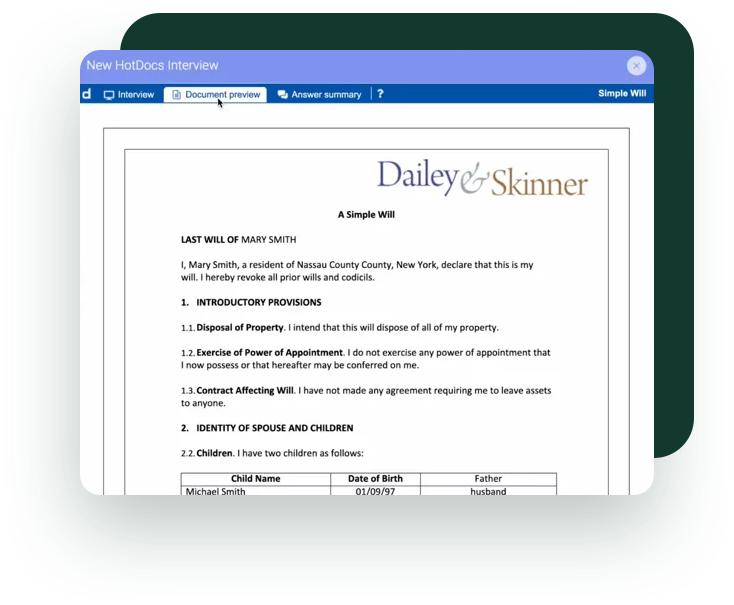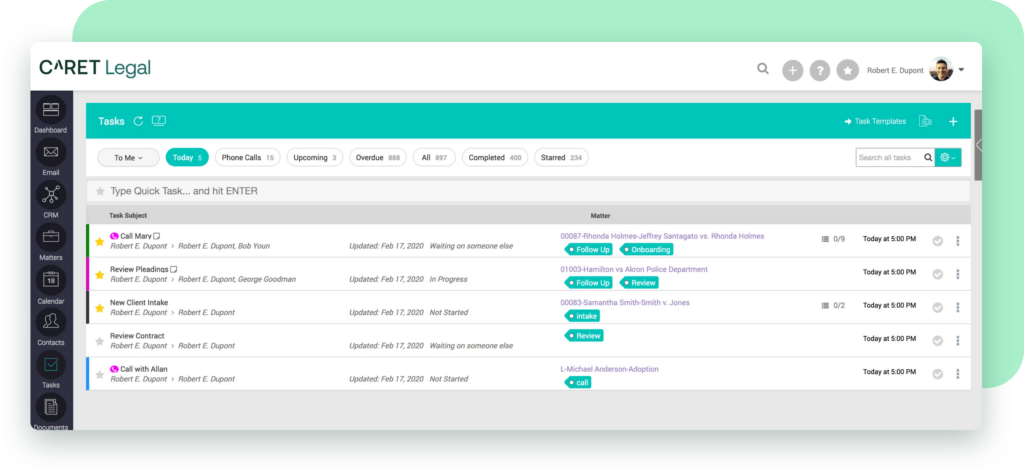Outdated law firm operations are causing firms to lose the top-tier talent they’ve invested significant time and resources in training.
Today’s legal professionals, particularly the younger generation, aren’t just looking for a job – they’re seeking a workplace that aligns with their values and expectations. Outdated law firm operations, which include everything from a misguided reliance on inefficient technologies to the absence of functional, flexible working arrangements, are not just affecting the firm’s efficiency — they’re causing law firms to lose the top-tier talent they’ve invested significant time and resources in training.
Old practices deterring new talent
Today’s legal professionals are tech-savvy, value work-life balance, and seek meaningful work. Thus, certain traditional practices can deter this new generation of talent:
- Outdated Technology: Using outdated software or technology can be a red flag for tech-savvy candidates who are used to efficient, modern systems.
- Paper-Based Systems: In the digital age, candidates expect efficient, technology-driven practices. Paper-based systems can be seen as a sign of inefficiency and resistance to change.
- Rigid Working Arrangements: The traditional 9-to-5 office-based work schedule is increasingly seen as outdated. Candidates now value flexible work arrangements that allow for a better work-life balance.
- Strict Hierarchical Structure: A rigid hierarchy can be off-putting for candidates who value collaboration and want to contribute meaningfully, regardless of their position.
- Inefficient Communication: Slow and inefficient communication can be frustrating and is often seen as a sign of poor organization.
How law firms can adapt to a new workforce
To attract and retain top talent, law firms need to adapt to the expectations of modern legal professionals. Here’s how:
Up-to-Date Technology
Staying current with the latest software and technologies is a must. This includes utilizing tools like legal practice management systems that include legal calendaring, automated workflows, and automated document creation.
- Legal Calendars: Modern law firm management systems often include legal calendars that sync with case files, tasks, and deadlines. These calendars can be shared among team members, ensuring everyone is aware of important dates and deadlines.
- Automated Workflows: Automated workflows can streamline repetitive tasks and events, saving time and reducing the risk of errors. You’ll need to choose the event or task that will serve as the anchor ate and once the template is triggered, tasks and calendar events will automatically show up in both your and your teams’ calendars, facilitating the next steps. This automation can free up lawyers’ time to focus on more complex and engaging work, making the firm more attractive to top talent.
- Automated Documents: Automated document creation can significantly speed up the process of generating standard legal documents. By using templates and auto-fill features, these systems can populate documents with relevant information, reducing manual data entry and the risk of errors. This not only saves time but also ensures consistency and accuracy in document creation.

Powerful document automation with HotDocs
Centralized, Digital Practice Management
Embracing a digital legal practice management system signals to candidates that your firm values efficiency and modern practices. Practice management platforms provide a centralized location for documents, notes, tasks, and deadlines, making it easier to track progress and manage cases. By eliminating the need for physical files, they reduce clutter and enable lawyers to work from anywhere, an attractive feature for top talent. This technology also supports profitability, allowing lawyers to focus more on the legal work and less on administrative tasks, thus appealing to ambitious professionals seeking meaningful work.
Flexible Working Arrangements
Flexible working arrangements refer to the ability to work outside of traditional office hours or locations. Modern law firm management systems, especially those that are cloud-based, can support this by providing secure, remote access to case files and other essential resources. This flexibility can significantly improve work-life balance, a key factor for top talent who value autonomy and the ability to manage their own schedules. In this way, law firms can attract and retain high-performing individuals who might be seeking a better balance between their professional and personal lives.
By eliminating the need for physical files, legal practice management platforms reduce clutter and enable lawyers to work from anywhere, an attractive feature for top talent.
Flatter Organizational Structure
Embracing a flatter structure encourages collaboration and open communication, regardless of team members’ positions. Legal practice management software is critical in supporting this approach. It centralizes case and matter operations and includes management tools for tasks, deadlines, time tracking, and billing, streamlining operations. It also allows document sharing and direct communication within the platform, fostering a collaborative environment. Users get a comprehensive overview of all case-related elements at a glance. Additionally, smart statistics keep users updated with vital information, increasing efficiency and making the firm attractive to top talent who value transparency and a team-oriented work environment.
Continuous Learning and Development
Regular training and professional development opportunities are crucial for employee growth and career advancement. This can be achieved through in-house training, e-learning platforms, or by sponsoring employees to attend relevant courses or conferences. Top talents are often ambitious individuals who are keen to expand their skills and knowledge, and a firm that invests in continuous learning and development is likely to attract and retain such individuals.
Efficient Communication Tools
Efficient communication tools, such as those found within modern law firm management systems, are vital for modernizing internal communication and enhancing collaboration. By making it easier to manage tasks and communicate, these tools can improve the overall work experience and make the firm a more attractive place to work for top talent. Top talent often values clear, efficient, and effective communication, and a firm that invests in such tools is likely to attract and retain these individuals.

Keep everyone accountable with legal task management
Stop losing talent to more modern firms
The key to successful talent acquisition and retention lies in understanding and adapting to the changing expectations of legal professionals. By modernizing your operations, you’re not just staying current – you’re creating an environment that aligns with the values and expectations of today’s top talent. Making a commitment to innovation and excellence will automatically propel your firm to be a magnet for the best and brightest in the industry.
Improve Employee Engagement and Client Satisfaction
With the right legal technology, your firm can attract employees, reduce turnover and generate more business.
By ensuring the retention of top-tier talent, you’re laying the foundation for long-term success. Your firm will be better equipped to navigate the challenges of the modern legal landscape and seize the opportunities that come your way. Don’t let outdated operations hold your firm back. Make the decision to invest in your talent, embrace the change, and witness your firm flourish.
Ready to take the first step? Schedule a demo today.
